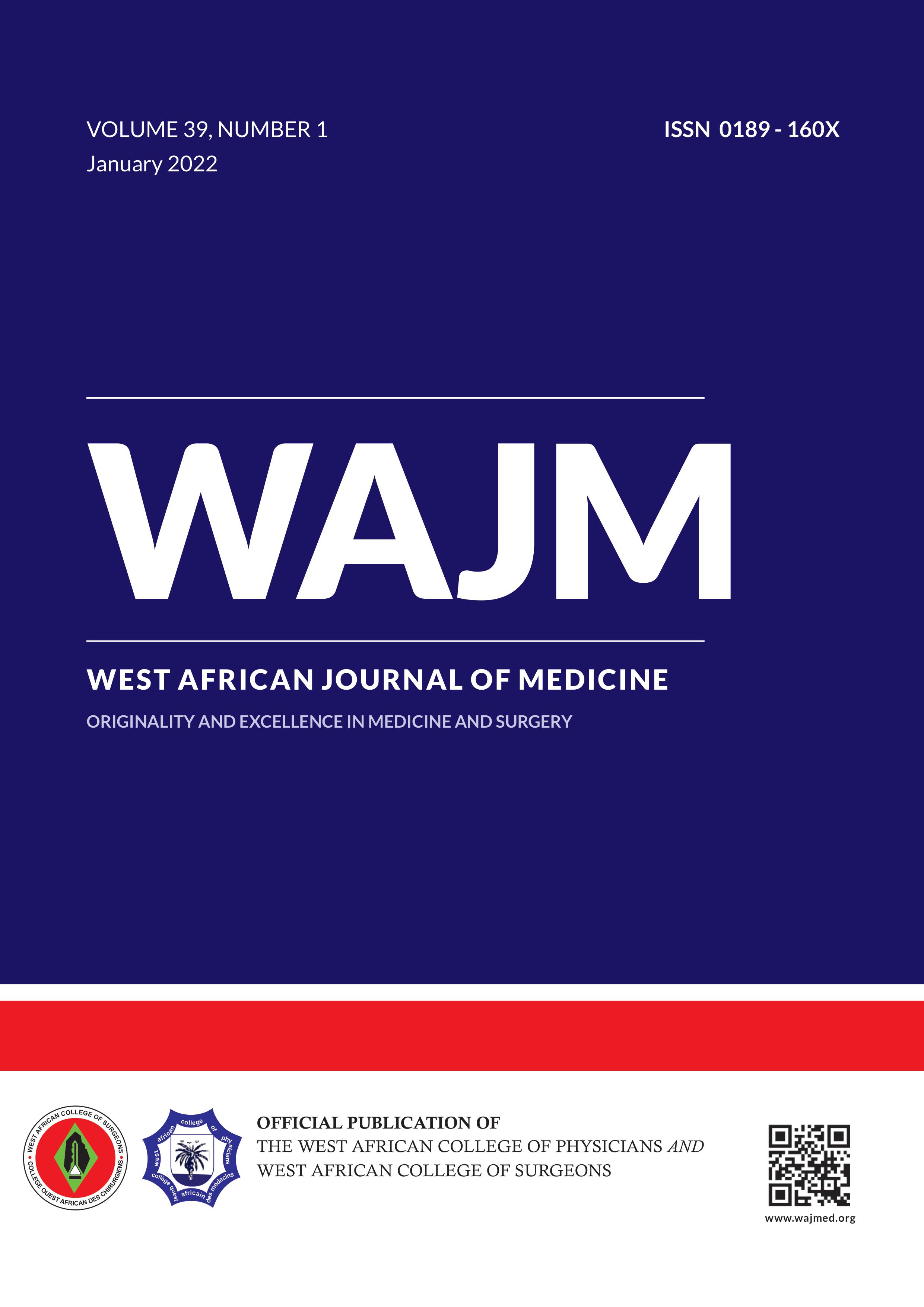ORIGINAL: An Assessment of Perceived Stigmatization of Patients Infected with COVID-19 in the Nation's Epicenter of the Pandemic: A Cross-Sectional Study of Residents of Agege, Lagos, Nigeria
West Afr J Med. 2022 January; 39(1): 97-106
Keywords:
COVID-19; Nigeria; Perception; Self-reporting; Stigmatization.Abstract
Background: In some parts of Africa, the patients and those who survived COVID-19 are stigmatized and this has impeded the response activities put in place to control the pandemic. In spite of this, most efforts in preventing COVID-19 were geared towards the use of non-pharmacologic measures without corresponding measures to dissipate stigmatization in the community. Therefore, this study assessed the factors associated with perceived stigmatization of patients with COVID-19 among residents of Agege local government, Lagos State, Nigeria.
Methods: We conducted a cross-sectional survey among 333 consenting residents recruited from Agege local government area (LGA) using a multi-stage sampling technique. A semistructure, interviewer-administered questionnaire adapted from the People Living with Human Immunodefiency Virus (PLHIV) Stigma Index was used to collect data on socio-demographic characteristics, knowledge of COVID-19 and perceived stigmatization. Bivariate analysis was done using Chi-square and binary logistic regression was used to identify the determinants of perceived stigmatization at 5% level of significance.
Results: The mean age of the respondents was 35.7 ± 13.6 years. Awareness about COVID-19 outbreak was 95.2%. Television (43.5%) and radio (36.9%) were the two major sources of information on COVID-19 infection and prevention. The proportions of the respondents who had poor knowledge and perceived stigmatization of COVID-19 patients were 50.0% and 47.7% respectively. A higher likelihood of perceived stigmatization was found among those aged 25 - 49 years (aOR= 3.1, 95% CI = 1.4 - 6.7), > 50 years (aOR= 2.1, 95% CI = 1.1 - 3.9) and married respondents (aOR= 1.8, 95% CI = 1.1 - 2.9).
Conclusion: The study highlights the poor knowledge about COVID-19 and a high level of stigmatization. Hence, targeted health educational interventions are urgently needed for the residents of Agege, most especially among married respondents as well as the adults.
Authors O A Babatunde 1 2, S A Owoicho 3, S T Sunday 3, A Akande 4, B M Yesufu 5, I M Akanbi 6, M D Dairo 7

